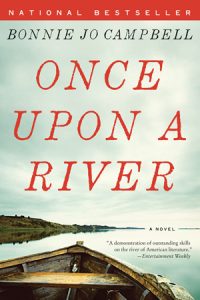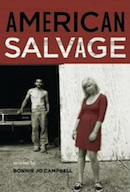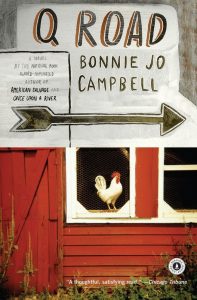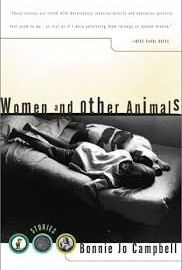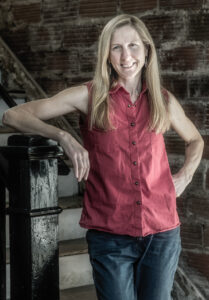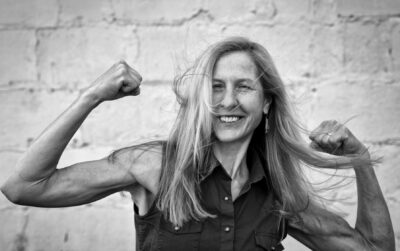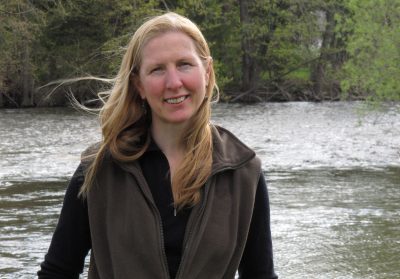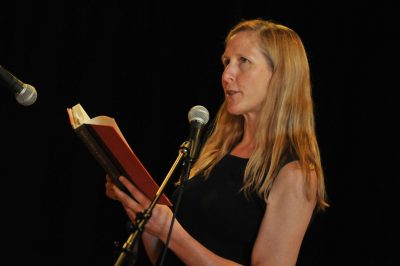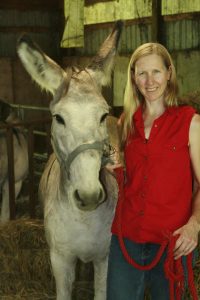
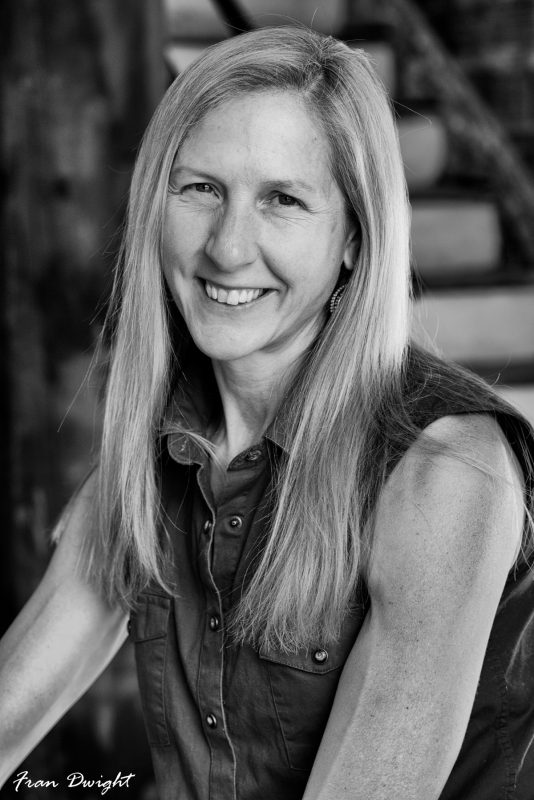
Bonnie Jo Campbell
Bestselling Fiction Writer
National Book Award Finalist
Short Story Writer
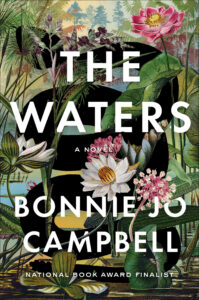
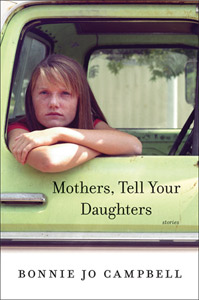
Readings &
Lecture Topics
- An Evening with Bonnie Jo Campbell
Biography
“Campbell is a bard, a full-throated singer whose melodies are odes to farms and water and livestock and fishing rods and rifles, and to hardworking folks who know the value of life as well as the randomness of life’s troubles.” —Entertainment Weekly
“American fiction waited a long time for Bonnie Jo Campbell to come along.” —Jaimy Gordon
“Campbell’s an American voice-two parts healthy fear, one part awe, one part irony, one part realism.” —Los Angeles Times
Bonnie Jo Campbell is the author of the National Bestselling novel Once Upon a River (Norton, 2011), a river odyssey with an unforgettable sixteen-year-old heroine, which the New York Times Book Review calls “an excellent American parable about the consequences of our favorite ideal, freedom.” Her first novel, Q Road, delves into the lives of a rural community where development pressures are bringing unwelcome change in the character of the land. Her most recent novel, The Waters (W. W. Norton, 2024), a National Bestseller, was selected as Jenna Bush Hager’s January 2024 book club pick.
Campbell’s critically-acclaimed short fiction collection American Salvage (Wayne State University Press, 2009) was finalist for the National Book Award and the National Book Critic’s Circle Award. The collection consists of fourteen lush and rowdy stories of folks who are struggling to make sense of the twenty-first century. Donna Seaman wrote, “Campbell’s busted-broke, damaged, and discarded people are rich in longing, valor, forgiveness, and love, and readers themselves will feel salvaged and transformed by this gutsy book’s fierce compassion.” She is also the author of Women and Other Animals, which won the AWP prize for short fiction; and the collection Mothers, Tell Your Daughters.
Her story “The Tattoo” is included in the anthology Shadow Snow, a tribute to Ray Bradbury. Her story “The Smallest Man in the World” was awarded a Pushcart Prize and her story “The Inventor, 1972” was awarded the 2009 Eudora Welty Prize from Southern Review. She is a 2011 Guggenheim Fellow.
Campbell grew up on a small Michigan farm with her mother and four siblings in a house her grandfather Herlihy built in the shape of an H. She learned to castrate small pigs, milk Jersey cows, and, when she was snowed in with chocolate, butter, and vanilla, to make remarkable chocolate candy. When she left home for the University of Chicago to study philosophy, her mother rented out her room. She has since hitchhiked across the US and Canada, scaled the Swiss Alps on her bicycle, and traveled with the Ringling Bros and Barnum & Bailey Circus selling snow cones. As president of Goulash Tours Inc., she has organized and led adventure tours in Russia and the Baltics, and all the way south to Romania and Bulgaria.
For decades, Campbell has put together a personal newsletter—The Letter Parade—and she currently practices Koburyu kobudo weapons training. She has received her MA in mathematics and her MFA in writing from Western Michigan University. She lives with her husband and other animals outside Kalamazoo, and she teaches writing in the low residency program at Pacific University.
Short Bio
Bonnie Jo Campbell is the author of the novels The Waters, Once Upon a River, a National Bestseller, and Q Road. Her critically-acclaimed short fiction collections include American Salvage, which was a finalist for both the National Book Award and the National Book Critic’s Circle Award; Women and Other Animals, which won the AWP prize for short fiction; and Mothers, Tell Your Daughters (Autumn 2015). Her story “The Smallest Man in the World” was awarded a Pushcart Prize and her story “The Inventor, 1972″ was awarded the 2009 Eudora Welty Prize from Southern Review. She was a 2011 Guggenheim Fellow.
Visit Author WebsiteVideos
Publications
The Waters
Novel, 2023
“This is a verdant, gripping, and clarion saga of home, family, and womanhood, of meaningful work and metamorphosis, of poisons and antidotes, and the urgent need for us to heal and sustain the imperiled living world that heals and sustains us.” —Booklist Starred Review
On an island in the Great Massasauga Swamp—an area known as “The Waters” to the residents of nearby Whiteheart, Michigan—herbalist Hermine “Herself” Zook has healed the local women of their ailments for generations. As stubborn as her tonics are powerful, Herself inspires reverence and fear in the people of Whiteheart, and even in her own three daughters. The youngest, beautiful and inscrutable Rose Thorn, has left her own daughter, eleven-year-old Dorothy “Donkey” Zook, to grow up wild. Donkey spends her days searching for truths in the lush landscape and in her math books, waiting for her wayward mother and longing for a father, unaware that family secrets, passionate love, and violent men will flood through the swamp and upend her idyllic childhood. With a “ruthless and precise eye for the details of the physical world” (New York Times Book Review), Bonnie Jo Campbell presents an elegant antidote to the dark side of masculinity, celebrating the resilience of nature and the brutality and sweetness of rural life.
Mothers, Tell Your Daughters
Stories, 2015
The strong but flawed women of Mothers, Tell Your Daughters love and betray one another; their richly fraught relationships can act as anchors, lifelines, or deadly poison. Bonnie Jo Campbell’s working-class protagonists are at once vulnerable, wise, cruel, and funny, and they are always getting into or out of trouble. In “My Dog Roscoe,” a new bride becomes obsessed with the notion that her dead ex-boyfriend has returned to her in the form of a mongrel. In “Blood Work, 1999,” a phlebotomist’s desire to give away everything to the needy awakens her own sensuality. In “Home to Die,” an abused woman takes revenge on her bedridden husband. In these fearless and darkly funny tales about women and those they love, Campbell has created characters that will capture the hearts and minds of her readers.
Once Upon a River
Novel, 2011
“With all the fixings of a Johnny Cash song—love, loss, redemption—Campbell captures these Michiganders and their earthy, brutal paradise in tales rich with insight and well worth the trip.” —Elle
Bonnie Jo Campbell has created an unforgettable heroine in sixteen-year-old Margo Crane, a beauty whose unflinching gaze and uncanny ability with a rifle have not made her life any easier. After the violent death of her father, in which she is complicit, Margo takes to the Stark River in her boat, with only a few supplies and a biography of Annie Oakley, in search of her vanished mother. But the river, Margo’s childhood paradise, is a dangerous place for a young woman traveling alone; and she must be strong to survive, using her knowledge of the natural world and her ability to look unsparingly into the hearts of those around her. Her river odyssey through rural Michigan becomes a defining journey, one that leads her beyond self-preservation and to the decision of what price she is willing to pay for her choices.
American Salvage
Stories, 2009
American Salvage is rich with local color and peopled with rural characters who love and hate extravagantly. They know how to fix cars and washing machines, how to shoot and clean game, and how to cook up methamphetamine; but they have not figured out how to prosper in the twenty-first century. Through the complex inner lives of working-class characters, Campbell illustrates the desperation of post-industrial America, where wildlife, jobs, and whole ways of life go extinct and the people have no choice but to live off what is left behind.
National Book Award Citation:
In American Salvage, Bonnie Jo Campbell picks through the ravages of a small-town America gutted by shifting demographics, new technology, and methamphetamine. Eschewing nostalgia or bitterness, she leads with her curiosity, using canny observation and sensuous prose to coax the reader into dark, strange, primordial territory. These short stories approach their subjects from an array of perspectives, but what they share is freshness, surprise, and a compulsion to plumb some absolute extremes of American existence.
Articles & Audio
Read What’s In Print
• In The Waters, Bonnie Jo Campbell Dives Into the Swamp – Shondaland
• Bonnie Jo Campbell’s The Waters Is Pure Magic – Washington Post
• An off-the-grid herbalist hits the skids in an earthy new Bonnie Jo Campbell novel – LA Times
• The Best New Novels to Read this January – Oprah Daily
• “Daring women keep secrets” – Foreward Reviews
• Starred Review: The Waters by Bonnie Jo Campbell – Booklist
• The Waters selected as Jenna Bush Hager’s January 2024 Book Club Read – Today
• Bonnie Jo Campbell on ‘Mothers, Tell Your Daughters’ – The Chicago Tribune
• Author Bonnie Jo Campbell Wants to Understand Poor Rural Women – Michigan Radio NPR
• Review of Mothers, Tell Your Daughters — New York Times
• Review and Excerpt from Once Upon a River — NPR
• Review of Once Upon a River — New York Times
• Bonnie Jo Campbell in Conversation — Kenyon Review
• Review of Once Upon a River — Los Angeles Times
• Review of Once Upon a River — Entertainment Weekly
• Review of American Salvage and Interview — The Rumpus
• Review of Once Upon a River — Washington Post
Listen to Audio
• Interview with Bonnie Jo Campbell — The Dinner Party Download
Selected Writings
• Read an excerpt from Bonnie Jo Campbell’s The Waters – LitHub
MOTHERS, TELL YOUR DAUGHTERS (novel excerpt)
Used to be a doctor would wrap a woman up tight to hold body and soul together, but when I fell last week trying to get to the kitchen to pour myself a drink, they just untangled my tubes, picked me up like I was a child, and put me back in this awful bed. Told me I’d had a stroke. Now I’m lying here with a broken rib that aches.
Stop going through my cupboards and drawers and envelopes that are none of your damned business and sit down and hear me out, Sis. Being unable to say a word means my mind is about to burst. And since I can’t even hold a goddamned pen, I’m counting on you, my flesh and blood, to somehow read my thoughts. They say if they wrap my broken ribs I’ll get pneumonia, but I never got pneumonia before they stuck me in this hospice bed. In the old days, they fussed about a punctured lung, but maybe a busted rib hasn’t punctured a lung in this county since 1932, when old Mr. Wickman’s dapple-gray pony trampled him and sent him to an early grave.
As soon as I was big enough to climb onto my daddy’s bay mare, I used to pull blue jeans on under my skirts and ride all over the township. One day at a crossroads that mare took a sharp turn, and I continued straight on. That was all it took to break a rib in them days. A jackass kicked me when I was pregnant with you, Sis, cracked another couple of ribs. Maybe that’s why you were born distrusting and watchful, always waiting on things to fall apart. At nine pounds fourteen ounces, just the size of you could’ve busted me up from the inside.
After your daddy left, after he wrenched my arms from around his waist and tossed me aside like garbage, a Hereford bull crushed me against the barn wall, cracked three more, took my breath away. Funny, your daddy used to take my breath away just by walking into the room—I loved the way that man was always laughing. Look at my breath now, oxygen piped into me! If you want to make a fool of somebody with your smart remarks, tell everybody about how your daddy traveled all the way to Texas just to get shot and killed by somebody else’s husband.
You ought to get us some elderberry wine from the root cellar so we can sit together, you lifting the jelly jar to my lips. You remember the good old days, when I could drink and smoke all night, when I could feed more kids than any woman alive and love a man better. Now I’m dying in this house I was born in, dying with no wine, no cigarettes, no laughing or singing. The snow’s falling outside today, but with this oxygen running, they won’t even let me light my woodstove, much as I love the smell of burning oak and cherry. Last week, even with the lung cancer and morphine, I was speaking my mind, talking circles around every man and woman to prove I was not a fool, and I was still arguing with you, but now I’m lucky if I can spit out a word an hour. I’ve got a head full of stories you still need to hear, starting with my ribs, ending with my whole life.
ONCE UPON A RIVER (novel excerpt)
The Stark River flowed around the oxbow at Murrayville the way blood flowed through Margo Crane’s heart. She rowed upstream to see wood ducks, canvasbacks, and ospreys and to search for tiger salamanders in the ferns. She drifted downstream to find painted turtles sunning on fallen trees and to count the herons in the heronry beside the Murrayville cemetery. She tied up her boat and followed shallow feeder streams to collect crayfish, watercress, and tiny wild strawberries. Her feet were toughened against sharp stones and broken glass. When Margo swam, she swallowed minnows alive and felt the Stark River move inside her.
AMERICAN SALVAGE (short story excerpt)
“Break the window, Belle,” Thomssen said, over his shoulder. “Break the window on the stream side of the living room. Then cover it with plastic to keep the heat in. There’s a roll of plastic by the washing machine. The staple gun is in the top drawer in the utility room. And there’s duct tape.” They led him out into the snow and wind, and pulled the door tightly behind them. She probably would be able to find his house again, break the window’s lower sash, and slip in over the glass shards, unseen by the neighbors. Once inside, she’d turn up the heat, sit and hug herself on the couch, hunker in a nest of whatever blankets were within easy reach, huddle like a creature not quite human, a member of a doomed species who knows safety and warmth are always temporary. She would chain-smoke his cigarettes until the carton was empty, her eyes glassy, furtive, listening for sounds of danger, sounds of his return. She would take what easy comfort she could, but she would not look for the roll of plastic or the staple gun; never in a million years would she fix the plastic over the broken window to keep the snow and cold from rushing in after her.
—from “Bringing Belle Home”

